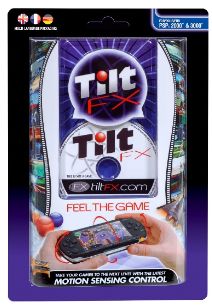- with readers working within the Construction & Engineering industries
The European Court of Justice (the "ECJ") has held that the variable data contents transferred from a computer program to a computer's random access memory ("RAM") and then used by the computer in its running does not gain protection under the Software Directive (2009/224/EC) – as the transferred contents do not allow the computer program to be reproduced or subsequently created: Sony Computer Entertainment Europe Ltd v Datel Design and Development Ltd and others (Case C‑159/23).
Background
Prior to 2014, multimedia conglomerate Sony Computer Entertainment Europe Ltd ("Sony") marketed the PlayStation Portable (the "PSP") – a handheld game console. On the other side of the dispute are Datel Design and Development Ltd and Datel Direct Ltd ("Datel"). Datel are a group of companies that produce software and products complementary to Sony's line of gaming products and consoles, including the "Tilt FX" for the PSP.

Such products, when plugged into the PSP via USB, provide the user with additional features and settings in specific video games. Such features include new tabs and interfaces which, when selected, remove specific software restrictions. These range from removing the 'booster' function in racing games to allowing characters/drivers to be available to users without meeting the prerequisite 'points' requirement to unlock them.
The dispute between Sony and Datel dates back to 2012, in which, on appeal, Sony's claim was dismissed in its entirety. In questions referred from Germany's Federal Court of Justice, the ECJ was asked to clarify whether Datel's software infringed Sony's exclusive right to authorise alterations to its computer programs.
The ECJ decision
It is settled law that original computer programs, insofar as they are the 'author's own intellectual creation', can benefit from copyright protection. Under the Software Directive, protection also extends to the 'expression in any form' of a computer program. The ECJ considered the source code and object code of the PSP's software to be a form of expression of the computer program as they allow the program to be reproduced or subsequently recreated. Conversely, the functionalities and the means by which users make use of the features of the program are not protected.
The ECJ observed that Datel's software runs concurrently with the PSP's software. It does not change the object or source code of the PSP software. Instead, it changes the 'content of the variables' that are temporarily transferred from a Sony video game to the random-access memory of the PSP.
As Datel's products only change the content of the variables transferred from the PSP's protected software to its RAM, the protected software is not reproduced. Rather, Datel's software runs concurrently with the PSP software whilst the user is playing a video game – allowing the game to run on the basis of the changed variables. The content of the variables is therefore considered a method in which the user makes use of the features of the program. As highlighted above, as long as Datel's products do not allow the program to be reproduced or subsequently created, then Sony cannot benefit from copyright protection – a question for the referring court to verify.
Comment
The ECJ's findings serve as a win for third-party software accessory providers, as long as the 'cheating software' (as it was referred to in the Advocate General's ruling) does not enable copyright-protected software to be reproduced/subsequently created. If changes are limited to variables stored in the computer's RAM and are not changes to the underlying object code or source code, there can be no infringement according to the ruling. This appears to align with the objective of the Software Directive, which is to limit the unauthorised reproduction and 'piracy' of programs.
Accordingly, the decision deals a blow to Sony and other video game console providers. A quick search of the internet yields numerous results for downloadable software for Sony consoles. Unless Sony can prove that the software is changing the underlying object code or source code and not merely allowing users to make use of the program, then it will fall outside the ambit of the Software Directive. Despite this, it is yet to be seen how this will affect the company's approach to dealing with software accessories.
As a final comment, and as Advocate General Szpunar himself stated, the implications of this case may apply 'beyond the narrow confines of video games..., as software which allows computer programs to be used differently from how they were originally designed may also exist in other sectors'.
With special thanks to trainee solicitor, Ali Zaghloul, for his contribution to this article.
The content of this article is intended to provide a general guide to the subject matter. Specialist advice should be sought about your specific circumstances.


